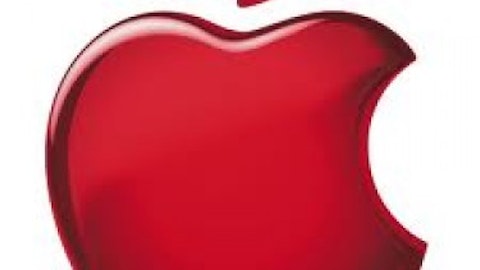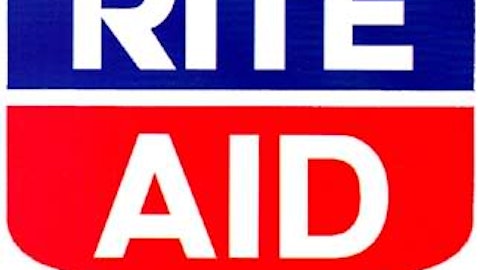Apple Inc. (NASDAQ:AAPL) products have a consistent level of quality, while I agree that the products are not for everybody. The company has done its best at creating an immersive computing experience that is easy to use and understand. The company’s retail strategy is likely to be fruitful in foreign markets.
The company also plans to lower the price of its products in order to capture a better share in emerging economies. The GDP per capita in China is $5,444 (average person in China makes much less than in the United States or Europe), meaning that it is practical for Apple Inc. (NASDAQ:AAPL) to lower the average selling prices of its phones in certain demographics in order to increase the rate of sales growth. Some feel uncomfortable with this, but it seems to be the most practical strategy going forward.
ExxonMobil isn’t set up to be what it is supposed to be
The company reported a quarter-over-quarter decline in earnings in the most recent quarter. Earnings declined. The primary reason for the decline in earnings was driven by the fact that the company’s crude oil realizations (price of crude oil) declined $8.66 per barrel.
The company’s upstream operations (drilling of natural resources) reported a $765 million year-over-year decline due to falling oil prices. The decline in the price of crude oil is likely to be temporary, but over the long-term, oil prices aren’t projected to go up exponentially.

Source: ExxonMobil
ExxonMobil anticipates further diversification in future sources of energy. The company’s management team anticipates peak oil in conventional crude & condensate by 2020. Traditional crude oil drilling generates the highest profit margins, but this high margin drilling business is being replaced by low-margin businesses like deepwater drilling, along with oil sands.
ExxonMobil projects oil consumption to increase 35% over the course of the next 40 years. So, total consumption is projected to increase less than 1% on average. The low rates of total consumption growth are driven lower by technologies that improve fuel consumption (hybrid car technologies have fuel efficiency into the 40 to 50mpg range).
California recently passed mandates for further fuel efficiencies, so a sudden exponential increase in organic demand is unlikely as technology is working down the demand for crude oil. California’s mandates for crude oil require that the Corporate Average Fuel Economy reach an average of 54.5 miles per gallons by 2025. The added efficiencies in fuel economy help to off-set the above growth rate in vehicles.
Conclusion
With due respect to Dick Bove, there’s just no way JPMorgan Chase & Co. (NYSE:JPM) can catch up to Apple Inc. (NASDAQ:AAPL), and especially not over the next five years. Perhaps, JPMorgan Chase will catch up to ExxonMobil, but that’s just because crude oil isn’t the hottest spot to be in.
The article Is Dick Bove Right About JPMorgan Becoming Bigger Than Apple? originally appeared on Fool.com and is written by Alexander Cho.
Alexander Cho has no position in any stocks mentioned. The Motley Fool recommends Apple. The Motley Fool owns shares of Apple and JPMorgan Chase & Co (NYSE:JPM). Alexander is a member of The Motley Fool Blog Network — entries represent the personal opinion of the blogger and are not formally edited.
Copyright © 1995 – 2013 The Motley Fool, LLC. All rights reserved. The Motley Fool has a disclosure policy.





